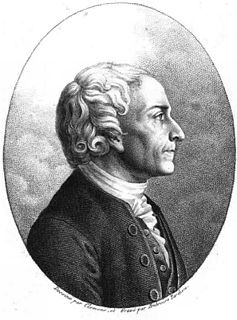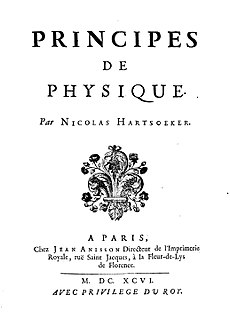
Delft is a city and municipality in the province of South Holland, Netherlands. It is located between Rotterdam, to the southeast, and The Hague, to the northwest. Together with them, it is part of both Rotterdam–The Hague metropolitan area and the Randstad.

Volvox is a polyphyletic genus of chlorophyte green algae in the family Volvocaceae. It forms spherical colonies of up to 50,000 cells. They live in a variety of freshwater habitats, and were first reported by Antonie van Leeuwenhoek in 1700. Volvox diverged from unicellular ancestors approximately 200 million years ago.
The Leeuwenhoek Medal, established in 1877 by the Royal Netherlands Academy of Arts and Sciences, (KNAW), in honor of the 17th- and 18th-century microscopist Antoni van Leeuwenhoek, is granted every ten years to the scientist judged to have made the most significant contribution to microbiology during the preceding decade. From 2015 the Royal Dutch Society for Microbiology (KNVM) will be awarding the Leeuwenhoek Medal.
The year 1643 in science and technology involved some significant events.
The year 1683 in science and technology involved some significant events.
The year 1673 in science and technology involved some significant events.

Abraham Trembley was a Genevan naturalist. He is best known for being the first to study freshwater polyps or hydra and for being among the first to develop experimental zoology. His mastery of experimental method has led some historians of science to credit him as the "father of biology".

Regnier de Graaf, original Dutch spelling Reinier de Graaf, or Latinized Reijnerus de Graeff was a Dutch physician and anatomist who made key discoveries in reproductive biology. His first name is often spelled Reinier or Reynier.

Nicolaas Hartsoeker was a Dutch mathematician and physicist who invented the screw-barrel simple microscope circa 1694.

The Leeuwenhoek Lecture is a prize lecture of the Royal Society to recognize achievement in microbiology. The prize was originally given in 1950 and awarded annually. From 2006 to 2018 the prize was given triannually. Since 2018 the prize is awarded biannually. It is named after the Dutch microscopist Anton van Leeuwenhoek and was instituted in 1948 from a bequest from George Gabb. A gift of £2000 is associated with the lecture.

The Astronomer is a painting finished in about 1668 by the Dutch painter Johannes Vermeer. It is oil on canvas, 51 cm × 45 cm, and is on display at the Louvre, in Paris, France.

Philosophical Transactions of the Royal Society B: Biological Sciences is a biweekly peer-reviewed scientific journal published by the Royal Society. The editor-in-chief is John Pickett.

Microbiology is the study of microorganisms, those being unicellular, multicellular, or acellular. Microbiology encompasses numerous sub-disciplines including virology, parasitology, mycology and bacteriology.
Yarrowia is a fungal genus in the family Dipodascaceae. For a while the genus was monotypic, containing the single species Yarrowia lipolytica, a yeast that can use unusual carbon sources, such as hydrocarbons. This has made it of interest for use in industrial microbiology, especially for the production of specialty lipids. Molecular phylogenetics analysis has revealed several other species that have since been added to the genus.
Peter Henry Andrews Sneath FRS, MD was a microbiologist who co-founded the field of numerical taxonomy, together with Robert R. Sokal. Sneath and Sokal wrote Principles of Numerical Taxonomy, revised in 1973 as Numerical Taxonomy. Sneath reviewed the state of numerical taxonomy in 1995 and wrote some autobiographical notes in 2010.

Laura J. Snyder is an American historian, philosopher, and writer. She is a Fulbright Scholar and a Life Member of Clare Hall, Cambridge. She writes narrative-driven non-fiction books including, most recently, Eye of the Beholder: Johannes Vermeer, Antoni van Leeuwenhoek, and the Reinvention of Seeing, which won the Society for the History of Technology's 2016 Sally Hacker Prize. Snyder also writes for The Wall Street Journal and lives in New York City. She was a philosophy professor at St. John's University for twenty-one years.
Antonie is a Dutch and Romanian masculine given name cognate to Anthony and a Southern German feminine given name cognate to Antonia. Notable persons with the name include:
Maria Petronella Löhnis was a Dutch phytopathologist, microbiologist and botanist noted for studying potato diseases.
This page is based on this
Wikipedia article Text is available under the
CC BY-SA 4.0 license; additional terms may apply.
Images, videos and audio are available under their respective licenses.











